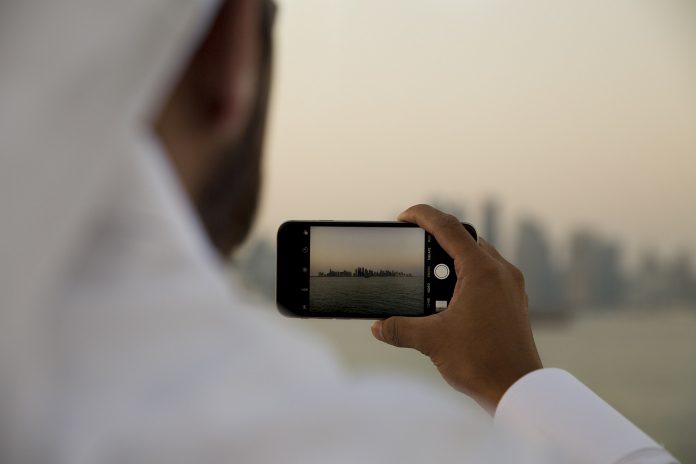
World-class brands have recently been resorting to marketing their goods and services on social media platforms through the pages of “followed” and “trending” bloggers & influencers. It becomes a win-win situation when these bloggers (who are not chosen based on a specific educational background or knowledge criteria but rather by the number of impressions and likes they build up), in turn, earn high wages from the comfort of their own homes. It was reported in a recent study in the UAE, that Instagram page owners with less than 10,000 followers are paid on an average USD 93-137 per post, whereas owners with 10,000 to 50,000 followers are paid between USD 133-185 per post. This means that with 10,000 followers and a single post a day, an Instagram page owner could potentially reach the same income as a mid-level marketing professional in the UAE.
Using a strict interpretation of the UAE Commercial Companies Law, these influencers are prohibited from contracting with businesses and promoting goods and services for a determined compensation without being licensed in the UAE to do so. Despite this, many online businesses have been trading in the UAE without an appropriate or correct trade licence. Recent new National Media Council (“NMC”) regulations now clearly address this particular scenario and impose a mandatory registration and licence requirement. Through these regulations, the NMC set licensing requirements that regulate social media influencers, fashionistas, or bloggers and their activities/paid partnerships of promoting makeup brands, high-end fashion lines, or even tourism in a country. This licence, however, will not be considered a “trade licence” that requires office space, sponsors employees, or grants the possibility of practicing different activities within the same sector, but rather a “permit” that regulates the e-commerce business on social media. Although there is speculation that the independent individual licence applicants will need to acquire a separate trade licence as well.
New regulation for social media influencers
The draft Electronic Media Activity Regulation Resolution (the “Regulations”) considers all online activities including e-commerce, publishing and selling of print, video and audio material to be regulated activities that require licences, “even if practised on social media”. The key element to this mandatory licence requirement is receiving financial compensation against a commercial arrangement (i.e. those who offer paid advertising services, as the Regulations mention), irrespective of whether the applicant is based in a free zone or on UAE mainland. That being said, these new regulations do not apply to personal website owners, bloggers, or even social media influencers who promote their own brands or review and market other brands without receiving remuneration. Acknowledging the different levels of how these social media bloggers or influencers operate, these Regulations have introduced three categories of permits: either working individually, as groups, or under an official body. The costs for an independent individual licence or a partnership licence (for a group of individuals) will be approximately AED 15,000 (approx. £3,000). The third option is to register with an official influencer agency, certified by NMC. These influencer agencies often do not ask for a direct payment/remuneration, however, they do restrict their registered bloggers or influencers to their portfolio of clients.
The Regulations set the deadline of June 2018 for all concerned individuals/corporate entities to obtain the necessary licence, or otherwise risk facing penalties for violating the Regulations. This licence will be valid for a period of one year, renewable for three years at a time (if the prescribed yearly fees are paid) and will cease to be valid thirty days after its expiry. The Regulations explicitly state that it remains the sole discretion of the National Media Counsel to reject, issue, amend, renew, cancel, and revoke the licence at any time should the licensee present untrue information or fail to comply with the National Media Council regulations and requirements.
Requirements and obligations of the new regulations
The Regulations also set out requirements that applicants must fulfil, which include that the applicant must be old enough to have legal capacity, have a good reputation and conduct, not have any financial dues towards the National Media Counsel, and to hold high academic qualification from a college, institute or an accredited university. The age and educational qualification requirements may however be excluded by NMC on a case-by-case basis.
The Regulations also outline the licensee’s obligation to:
- Adhere to and meet NMC’s regulations and any other concerned authority;
- Respect the values of society and public interest;
- Pay the necessary fees and dues and submit guarantees, as required by the provisions;
- Submit licence renewal applications from 30 days prior to its expiry; and
- Maintain a record of all materials published on a social media platform during twelve consecutive months; including the date and time they were published.
Further, the Regulations indicate that the licence shall be issued on behalf of the applicant, and cannot be leased, invested or managed. The licence may not grant permission to any other person to dispose of the activity mentioned on the licence, in any manner, except after submitting a request and obtaining the approval of NMC.
What does this mean for social media influencers in the UAE going forward?
By implementing these Regulations, the UAE and NMC have acknowledged the role that social media influencers have in the UAE’s economic landscape by granting them the treatment and stability received by other media services. Some influencers however, consider this initiative to be rather constraining, particularly given that for self-employed influencers and social media figures the costs may be high.
By Melissa Murray (Partner, Dubai) and Ayah Abdin (Paralegal, Dubai).
Photo by By ResDigital18, from Wikimedia Commons









